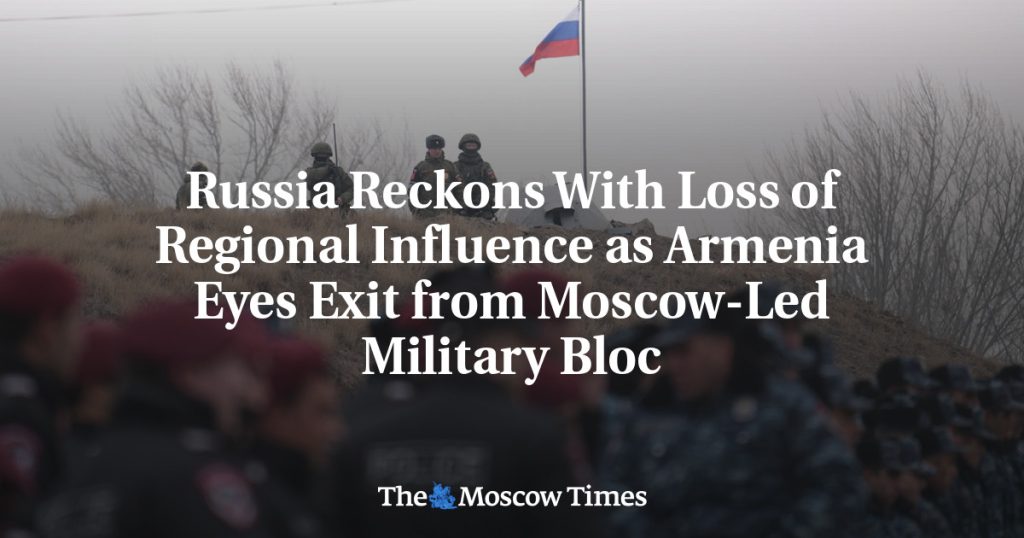Armenia’s potential exit from the Moscow-led Collective Security Treaty Organization (CSTO) has been a topic of concern for Russian officials, who privately acknowledge that their chances of preventing this withdrawal are slim. The rift between Yerevan and Moscow has been growing, with Prime Minister Nikol Pashinyan showing no signs of backing down. Russia relies on Armenia as a strong military ally, particularly in countering the threat from NATO member Turkey. The loss of Armenia from the CSTO would leave a security vacuum in the region that Russia would struggle to fill.
Armenia’s criticism of the CSTO and Russia heightened after they did not intervene in Azerbaijan’s 2023 capture of Nagorno-Karabakh. This led to Pashinyan declaring Armenia’s intention to leave the CSTO, citing the lack of support and accusing Belarus, another CSTO member, of backing Baku. The escalating tensions were further fueled by reports of Belarus supplying weapons to Azerbaijan. Pashinyan demanded apologies or Belarus’ expulsion from the CSTO as a condition for reconsidering Armenia’s exit. However, Russian officials view such ultimatums as impossible and unacceptable, emphasizing that Armenia remains an ally.
Actions taken by Armenia, such as freezing its CSTO participation, refusing financial contributions, and abstaining from key appointments, indicate a serious intent to leave the organization. This shift reflects not only the strained relationship between Yerevan and Moscow but also Armenia’s pivot towards Western alliances. The decision to withdraw from the CSTO would have significant implications for Russia’s presence and influence in the South Caucasus region. Additionally, Armenia’s economic ties with Moscow, as a member of the Russia-led Eurasian Economic Union, add complexity to the situation.
The loss of Armenia from the CSTO would leave Russia vulnerable in the South Caucasus, as it relies on Armenia for protection against Turkey, a significant security threat. The absence of Armenia from the CSTO collective security framework could potentially leave the region destabilized and create challenges for Russia in maintaining its influence. While the current Russian administration under Putin has been gradually withdrawing from the South Caucasus, Armenia’s departure from the CSTO would further exacerbate this trend. The question remains about how Armenia will address its economic dependence on Moscow if it proceeds with exiting the alliance.
The deepening rift between Russia and Armenia, as evidenced by the recent developments within the CSTO, highlights the evolving geopolitical dynamics in the Eurasian region. The growing alignment of Armenia with Western interests signals a significant realignment of alliances and poses challenges for traditional security arrangements. As Armenia navigates its relations with both Moscow and the West, the implications of its potential withdrawal from the CSTO will have far-reaching consequences for regional security and stability. The evolving situation underscores the complexities of power dynamics and strategic interests in the post-Soviet space.


